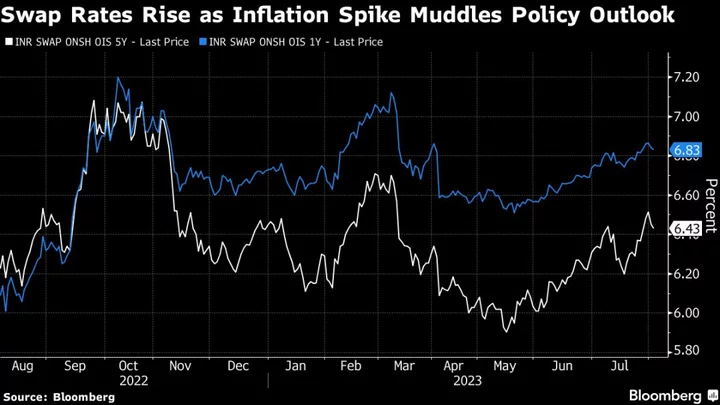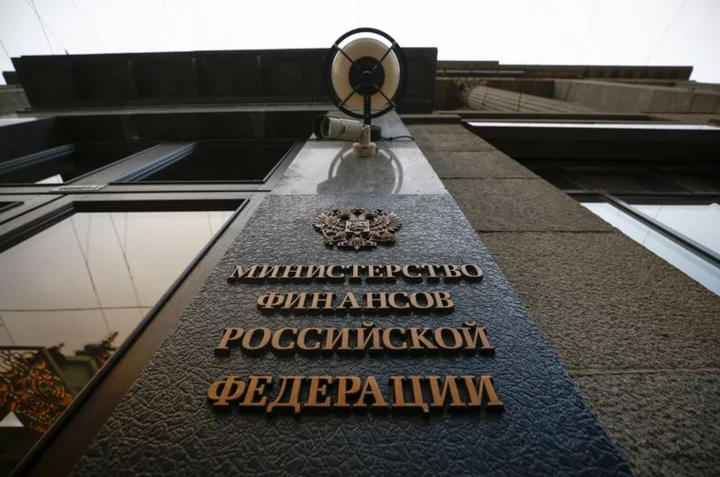Traders in India are pushing back rate-cut bets to later next year as a sudden spike in food prices may send inflation above the central bank’s tolerance limit.
Overnight-indexed swaps show that India’s borrowing costs are likely to decline only in the second half of 2024, a shift from earlier when they were pricing in two reductions after the June meeting, according to Australia & New Zealand Banking Group Ltd.
After moderating for four straight months, inflation accelerated in June as heavy rains damaged crops, and the economists expect the reading to exceed 6% in July. The possibility of a delay in easing limits the scope for a rebound in India’s bonds, which are seeing a selloff in tandem with global peers.
“The central bank has little room to signal dovishness due to food prices, a robust economy, and higher global rates,” said Rajeev De Mello, global macro portfolio manager at Gama Asset Management SA. “The spread between Indian and US rates has already reached very low levels.”
India’s bond yields have been on an uptick since sliding below 7% in May, rising to their highest level in more than three months.
Commentary from economists and fund mangers ahead of RBI’s Aug. 10 decision suggests there’s even a small chance of a rate hike in the coming months as inflation is likely to overshoot the central bank’s 2%-6% target band.
But some say the fallout from any surge in price pressures may be temporary.
Yields on the 10-year bond have been locked in a tight range in the past few months, and a substantial move beyond the 7%-7.25% band is not likely in the near term, said Amit Tripathi, chief investment officer of fixed income investments at Nippon India Mutual Fund. “Any negative surprise in the form of higher inflation prints may not sustain for long.”
The RBI left the benchmark rate unchanged in the last two meetings but its tone was largely perceived as hawkish due to inflation risks. Those concerns may accentuate after the recent surge in food costs. Crude prices are also climbing, making imports costlier for the world’s third-largest consumer of oil.
Data due Aug. 14 will probably show inflation rose to 6.47% in July, according to a Bloomberg survey of economists.
“Any significant deviations in inflation expectations or growth projections are likely to impact the central bank outlook and in turn yield expectations,” said Anand Nevatia, fund manager at Trust Mutual Fund. “Escalation in geopolitical tensions can lead to spike in crude and food prices thus having a negative impact on yields.”
Here are the key Asian economic data due this week:
- Monday, Aug. 7: Indonesia, China, Malaysia FX reserves; Indonesia GDP; Thailand CPI
- Tuesday, Aug. 8: South Korea, Japan balance of payments; Australia Westpac consumer confidence; Philippines exports; NAB business confidence; Taiwan CPI, Taiwan exports; China trade
- Wednesday, Aug. 9: South Korea unemployment rate; Japan money stock; China CPI, PPI
- Thursday, Aug. 10: China money supply, Japan PPI, Philippines GDP; RBI rate decision
- Friday, Aug. 11: Thailand forex reserves, New Zealand food prices; India industrial production
--With assistance from Jas Bardia and Liau Y-Sing.









